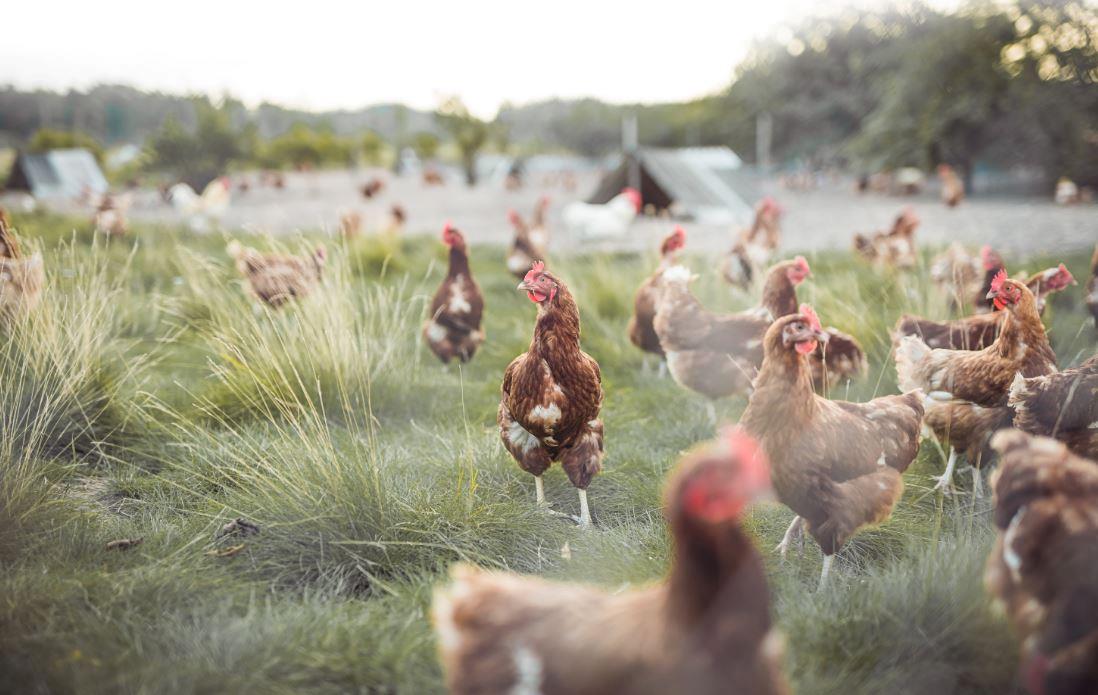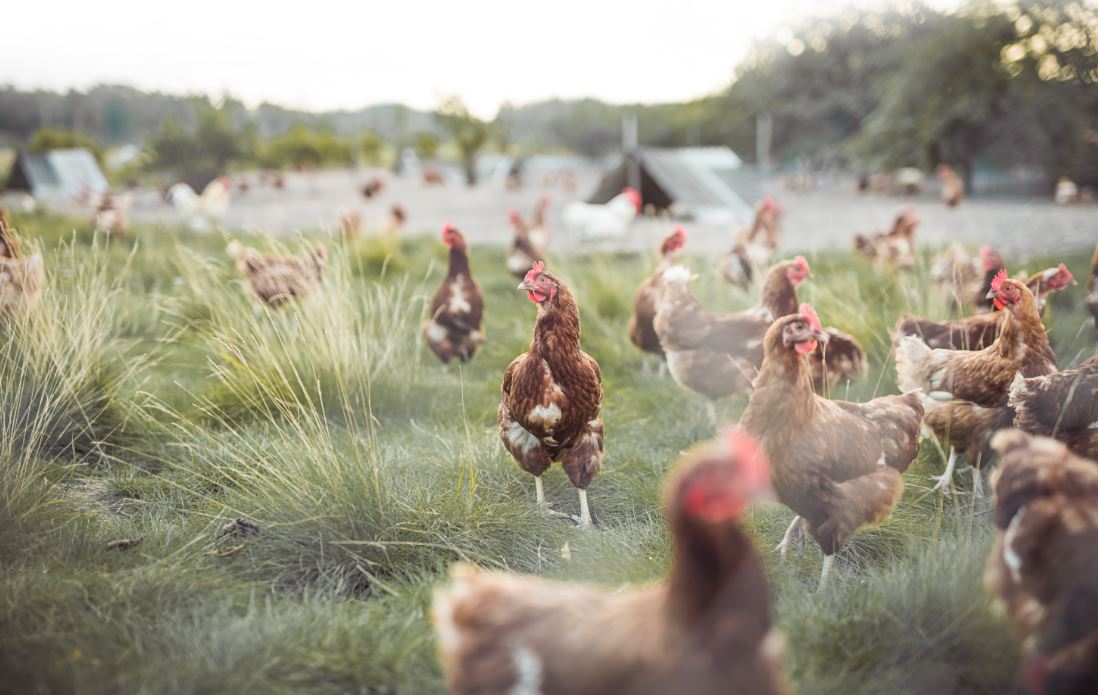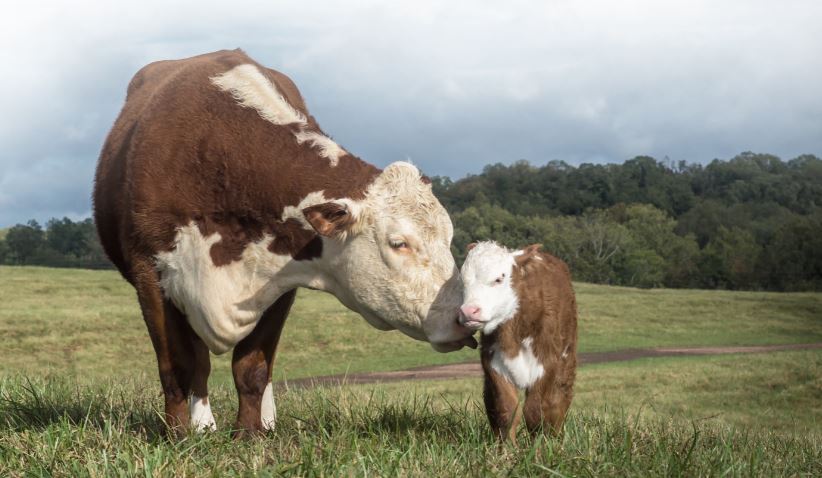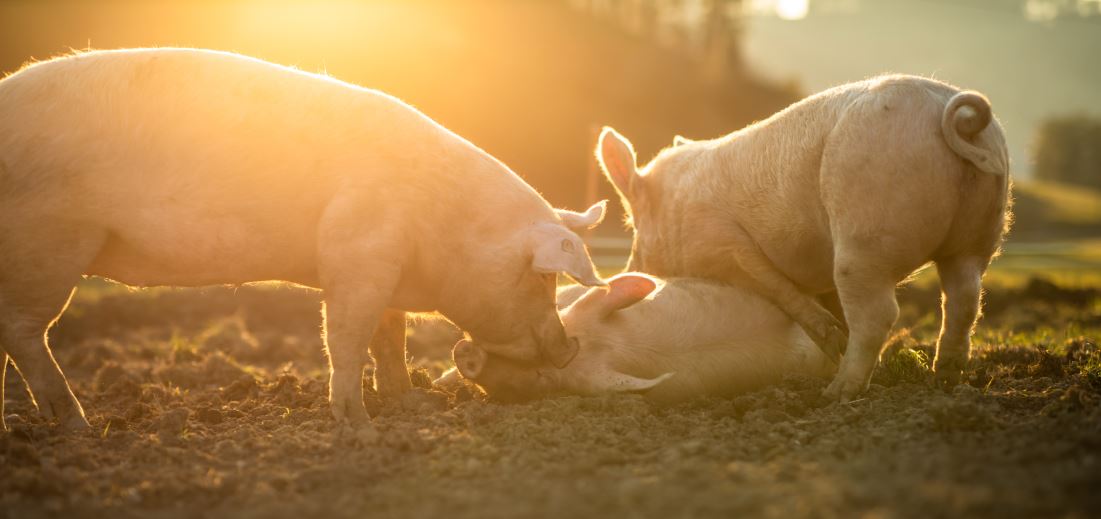OUR ORGANIC INGREDIENTS
19 June 2020
Organic farmers rear animals in an environment that provides both space and allows the animals to satisfy their natural instincts, not only meeting animal welfare needs but also producing healthy and robust animals.

Our organic chicken is produced in a number of certified farms in the Baden-Württemberg and Bavaria regions of Germany with all farms close to the processor to reduce food miles.
Organic chicken are produced in an environment that provides both space and the means to meet their natural instincts. They can engage in pawing and pecking and are given a special litter in which they can dust bathe whilst raised perches help keep the flock calm and maintain the natural flock hierarchy.
Importantly the animals have significantly more space than those in conventional chicken farming. Organic chickens are kept in small flocks with a maximum of 4,900 animals each. They have barn and outdoor space with each animal having four square meters of well-structured green space – compared to EU rules allowing 19 birds per square metre for conventionally produced chickens.
Chickens are sociable birds that live together as a flock with a clear hierarchy. Naturally, they would spend their day foraging for food, scratching the ground looking for food and dust bathing to keep their feathers in good condition and remove parasites. Many conventionally produced chickens live in a space smaller than an A4 piece of paper in sheds with no natural light and are denied the chance to engage in these natural behaviours.
Prevention of disease is managed by working with detailed health plans and by providing healthy living space and so there is no routine and preventative use of antibiotics.
The natural behaviour of cows is to spend time outside grazing. Organic cows spend around 200 days a year at pasture. When they need to come in, their accommodation is large with a minimum area of 1 metre2 per 100 kg of weight giving an 800 kg cow 8 metres2. Cows like to lie down for up to 14 hours a day – it allows them to rest their feet and to dry off. To allow them to do this even when inside at least 50% of the shed area is lie-back areas provided with deep straw, untreated wood shavings or rushes for them to lie on. The straw then becomes a valuable fertiliser to help improve soil quality.
They are fed a 100% organic diet of which at least 60% is grass based. When outside they will graze naturally on organically grown grass and clover, grown without artificial fertilizers. When outside grazing is not possible, they are fed on preserved grass, usually in the form of silage or hay – and other organic cereals.
These feeds coming either from the same farm or, when that is not possible, from organic farms in the same region.
Organic farmers tend to rear their beef cattle as suckler herds where they are kept in family groups with the calf sucking until the end of weaning, at least 3 months.
Organic beef farmers spend much of their time establishing and maintaining of clover based swards – expanses of short grass. To do this they must maintain good soil quality without the use of artificial fertilisers relying instead on the use of manure and careful rotation.
Prevention of disease is managed by working with detailed health plans and by providing healthy living space and so there is no routine and preventative use of antibiotics.
Organic pigs enjoy a very different life. Pigs are natural foragers. Their instinct is for rooting, digging up grass with their snout. They like to explore and they are curious and social. To allow them to do this they are given plenty of outdoor space.
Organic pigs are kept in conditions that allow them to engage in natural behaviour. They are kept in family groups and, importantly, have outdoor access all year round. Indoor housing is allowed during severe weather but they have plenty of straw bedding and access to an outdoor run.
Organically reared pigs are fed a mainly grain based diet of 100% locally produced organic origin – preferably from the same farm.
Prevention of disease is managed by working with detailed health plans, by providing healthy living space; by rotating the land used; by changing bedding and by selecting strains and breeds with natural disease resistance and so there is no routine and preventative use of antibiotics.
Wild caught fish, that we mostly use in SPECIFC diets can not be certified as organic. For our organic fish diets, we have used farmed fish from organic certified fish farms.
Organic certified fish are fed on the parts of the fish not wanted for human consumption – the head, frame and tails, and only using fish caught in fisheries certified as sustainable. Any plant material fed to farmed organic fish must come from certified organic farms.
Organic farmed fish are reared in sea cages and inland ponds with much lower stocking density. This lower stocking density reduces stress on the fish, improving health and createsless environmental impact by reducing the amount of uneaten feed and faecal waste.







